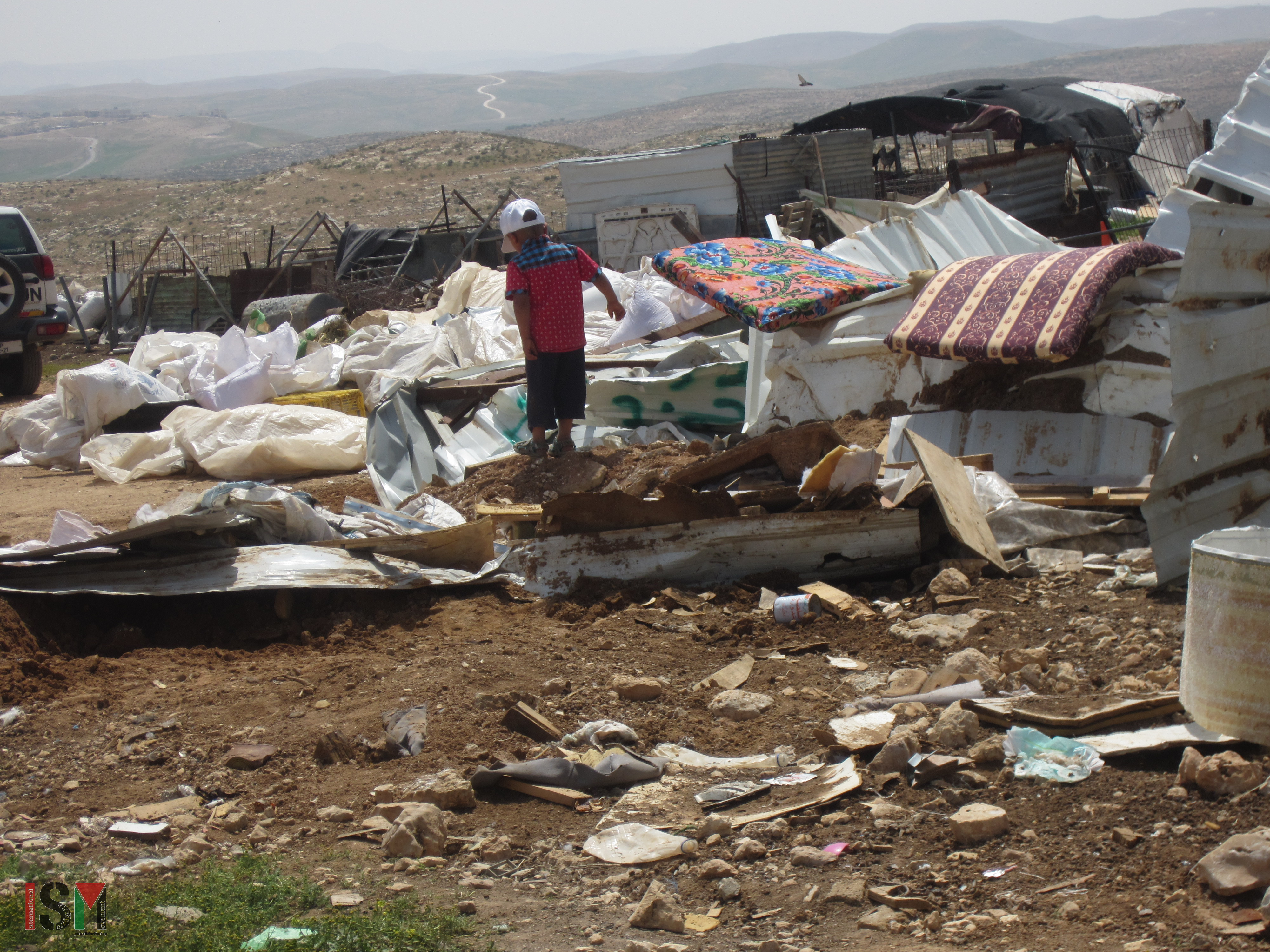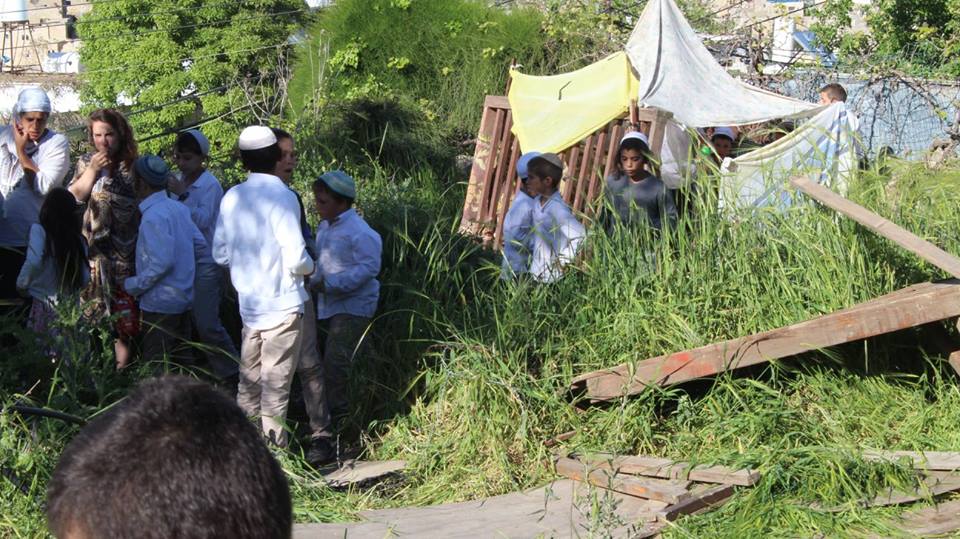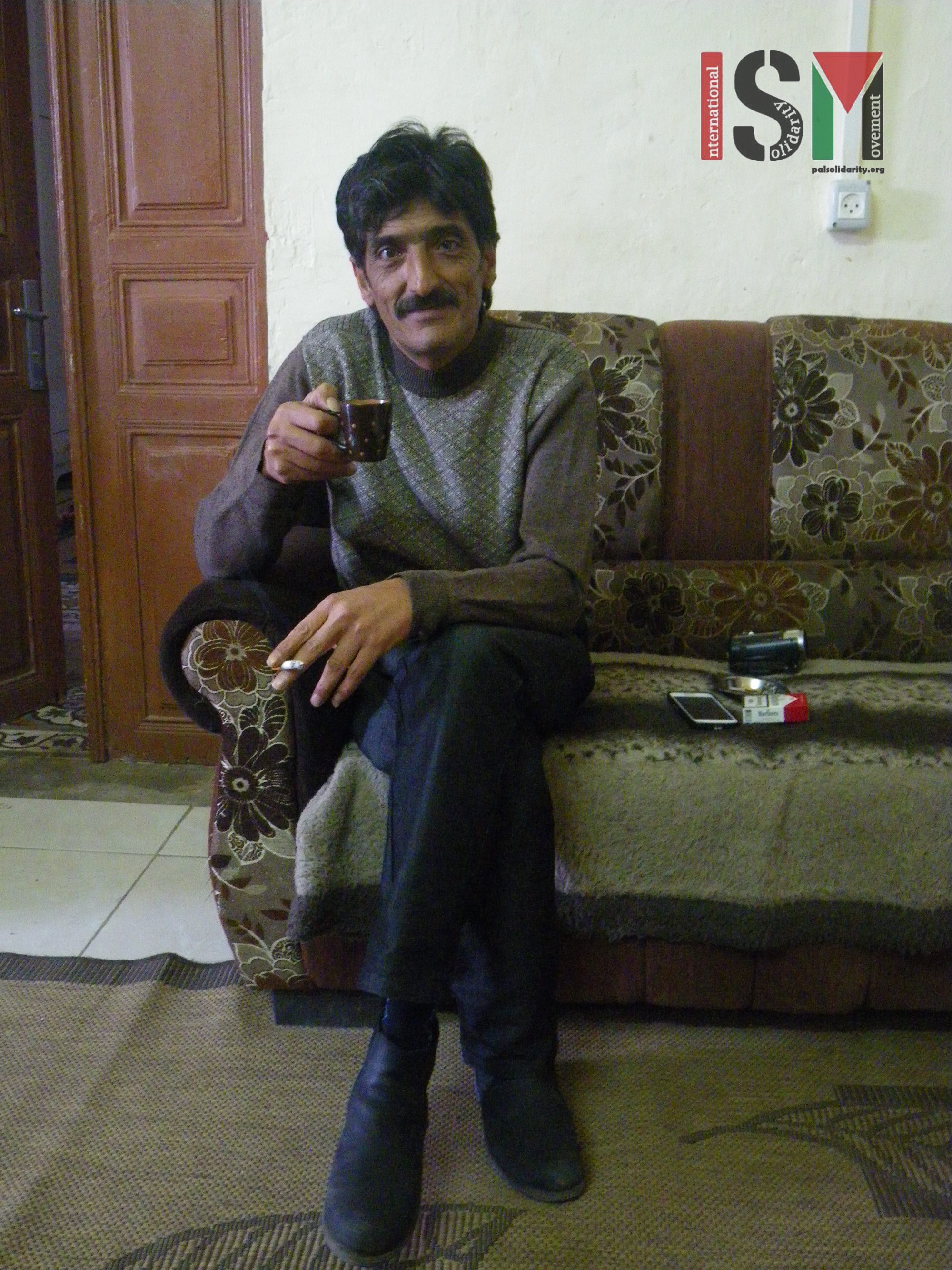Tag: Hebron
-
House demolitions in Um Al-Khair leaving children homeless
7th April 2016 | International Solidarity Movement, Al-Khalil Team | Hebron, occupied Palestine Wednesday the 6th of April 2016 at 6 o’clock in the morning, Israeli forces demolished 6 homes in the village of Um Al Khair in the south Hebron Hills in the southern part of the occupied West Bank in Palestine. 36 people…
-
Settlers expropriate Palestinian garden as police stand by
4th April 2016 | International Solidarity Movement, al-Khalil team | Tel Rumeida, al Khalil, occupied Palestine On Saturday 3rd of April 2016 settlers entered land belonging to Muhammad Abu Haikal in the Tel Rumeida area of Hebron on the occupied West Bank in Palestine. The settler children built a tent and then brought other settlers…
-
A night of protective presence needed
3rd April 2016 | International Solidarity Movement, al-Khalil team | al-Khalil, occupied Palestine The two boys met us at the store, shouting the name of our Palestinian contact and waving us along. The cobbled stones in the alley made a nice contrast to the darkness of the night. My feet landed softly on the mud…



